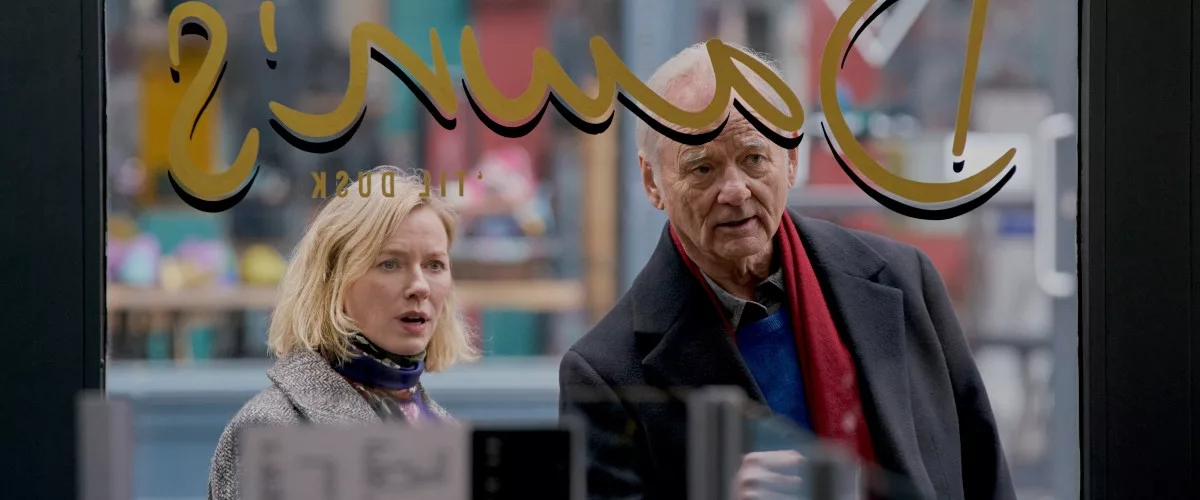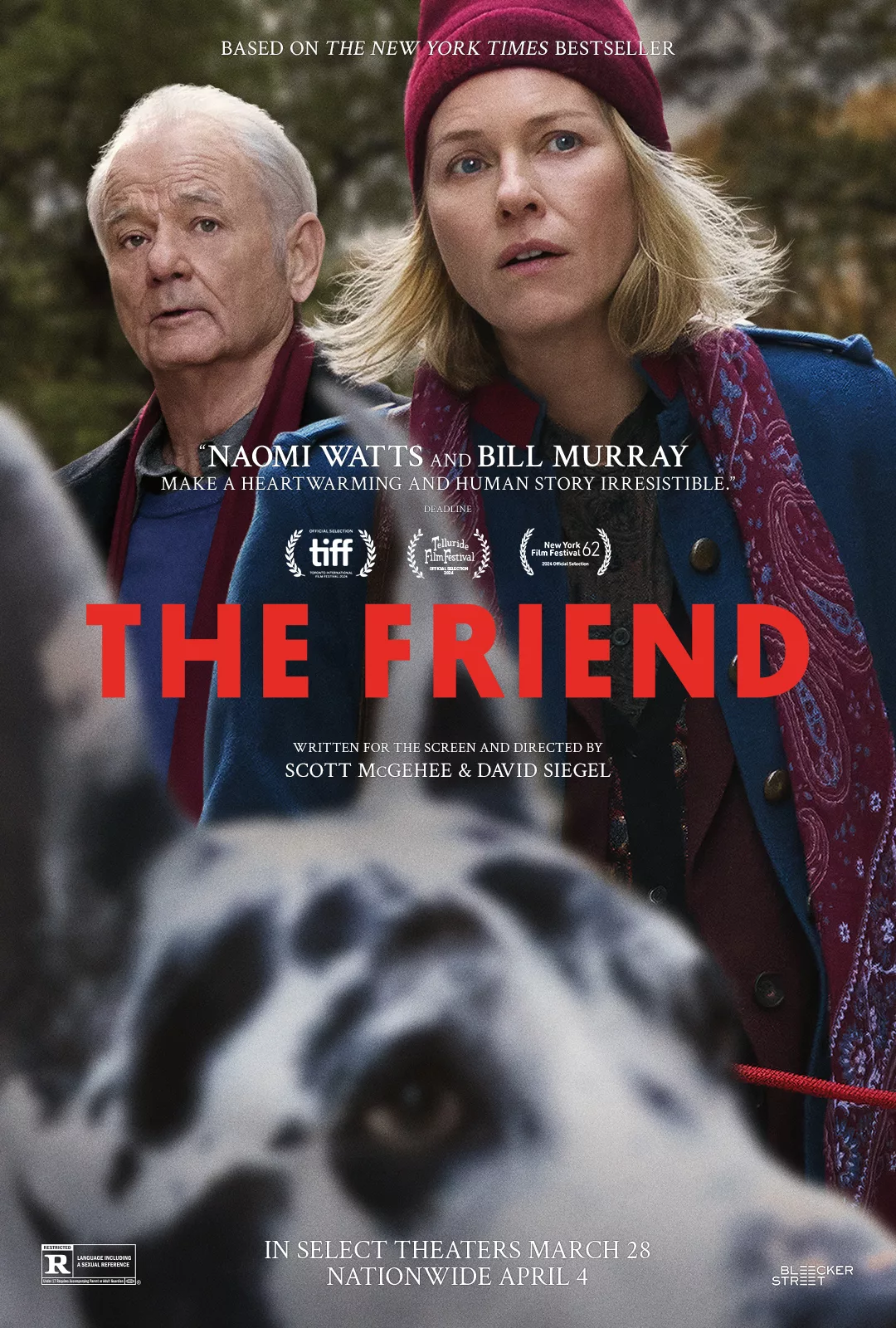David Siegel and Scott McGehee are among the most humane, literate, and engaging American filmmakers working today. Their work—prior films include “Bee Season” and “Montana Story”—often takes a discreet approach to their subjects (which range far and wide). This discretion can look like aloofness if you’re not paying enough attention. Which isn’t to say that they don’t know the value of a certain kind of detachment—one of their recent pictures, the superb “What Maisie Knew,” is a Henry James adaptation.
I don’t want to say that they abandon all subtlety and go straight for the tear ducts by way of an emotional punch to the solar plexus of your soul with “The Friend,” which they adapted from a novel by Sigrid Nunez. But none of their pictures has ever featured a male hero quite so unambiguous, who provided such a strong rooting interest, as Apollo, the dog who finds a highly reluctant caretaker in the person of Iris, a beleaguered New York writer played by Naomi Watts.
Iris is being pulled too many ways. One of her writing students is coyly semi-threatening to show her his erotic fiction. A current project is steadfastly refusing to take wing. Her best friend and mentor, a beguiling verbal magician named Walter, has just taken his own life, leaving behind what seems a platoon of ex-wives and lovers. And also leaving behind the aforementioned dog, which for reasons Iris can’t quite fathom, he has bequeathed to her.
Apollo, who’s played by the superb canine performer Bing, seems an unlikely hero at first. The Great Dane has sadder-than-sad eyes complemented by frowning jowls. It doesn’t want to get up to much. Instructed by Iris not to get on her bed, he of course promptly flops onto it, and his sprawl is such that Iris has to get out an air mattress and camp out on the floor for a bit. On the other hand, Apollo is a good listener who has orderly habits. Siegel and McGehee shoot and edit their scenes together with an eye that’s both sharp and highly empathetic.
None of which cuts any ice with Iris’ kind but by-the-rules building supervisor, who informs Iris that the apartment house has a strict no-dogs policy. And it’s not as if a Great Dane is a pooch you can sneak in and out in your purse. But as Iris seeks to find a suitable place or person on which to offload the dog, she increasingly finds herself not wanting to. She has plenty of human friends—but you know how people in the writing world are. What Apollo offers Iris is unconditional. She seems never to have experienced that before, and she comes to value it. How could she not?
At the end of the movie, Iris contrives a means by which to reunite with the departed Walter. Their confrontation scene is not only intellectually volatile—how can a discussion of suicide with a person who’s committed suicide not be so?—it’s also devastatingly moving. The work Watts and Murray do in this sequence is both emotionally raw and acutely thoughtful, rife with specificity. It’s career-high stuff.




















